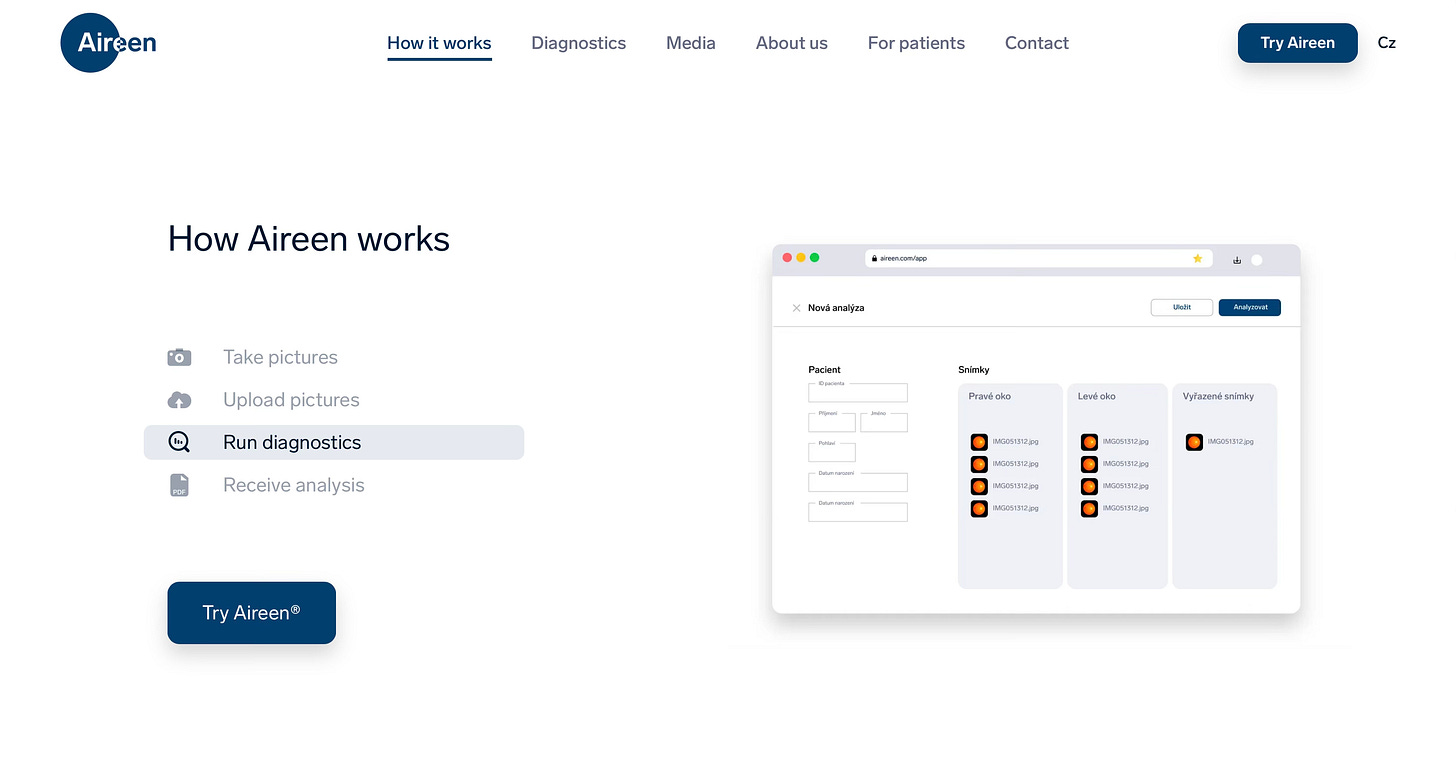Investing into the future of healthcare: Review of a deep tech venture-capitalist
Health is a crucial factor in our lives that many of us start thinking about only when it goes wrong. Many of us, in the fast-paced startup industry, forget that without the proper functioning of our bodies and, by extension, our minds, we wouldn’t be able to function at all.
Furthermore, or maybe because of that, our current healthcare system, the safety net that we hope will fix our bodies when everything else fails, is outdated. It is still standing mostly on the backs of hard-working people whose lives could be made significantly easier if we, technologists and entrepreneurs, focused more on solving their everyday problems.
Healthcare, as an industry, is globally valued at $8.9 trillion and encompasses a complex set of products and services that range from the basics of our care systems, such as hospital networks and primary care providers, to groundbreaking therapeutic and diagnostic solutions coming straight out of the labs of some of our most innovative companies. Healthcare and its costs are also some of the most pressing problems of today’s developed world, where we struggle to imagine how we will be able to pay for the care of our aging population. Just the worldwide cost of Alzheimer’s-related care has recently climbed over $1 trillion per year, and that’s “just” one disease. At the same time, our healthcare systems are burdened by one of the biggest regulatory loads, causing healthcare workers to be burdened by meaningless paperwork, and drug development nearly turning uneconomic (by the latest figures, it costs $2.3 billion to bring one new drug to market).
But the biggest problems can often be transformed into the biggest opportunities. While new movements (such as longevity and quantified self) are already emerging to circumvent the traditional healthcare system altogether, here we’d like to discuss how disruptive technologies from the fields of digital health and MedTech offer hope for preserving our current care systems and helping them become more effective and equitable. Moreover, as A16z Notes, they present one of the biggest business opportunities in the coming years.
Healthcare Innovation Throughout History
Healthcare and medicine have always depended on the latest science and innovation to advance. Medicine likely dates back as far as humanity itself, and its development has closely paralleled advancements in biology and related sciences. In the Western world, the emergence of modern medicine is typically traced to the 18th century, following the Industrial Revolution. One of the earliest vaccines, a groundbreaking biotechnology, was invented in 1796 by Edward Jenner.
Technological solutions began influencing healthcare later, with the development of one of the first medical devices—the electrocardiograph (ECG)—by Willem Einthoven in 1887, marking the start of the MedTech industry. Digital health traces its origins to 1897, with the first diagnosis conducted via telephone. These early intersections of healthcare and technology laid the foundation for a 20th-century wave of innovations, including dialysis machines, ultrasound, insulin pumps, and PET scanners, among others.
Healthcare Innovation Today: The Power of Ecosystems
Today, we see tremendous potential in integrating advanced AI software—particularly large language model (LLM)-derived agents and novel machine learning techniques—into physicians’ daily workflows. These technologies can ease the burden on medical professionals, enable personalized medicine through data mining, and power AI-enabled devices and digital therapeutics that deliver accurate diagnoses and treatments for the most pressing diseases.
At Tensor Ventures, we’ve already made several investments in this space. For example:
Aireen: An AI medical device providing non-invasive, painless screening for chronic diseases via digital retina imaging.
Scalpel.ai: An AI platform that improves surgical efficiency and patient safety by automatically identifying and classifying surgical inventory.
Solvemed.ai: A first-in-class digital pupillometry and eye-movement clinical examination tool for remote monitoring.
These investments have taught us a critical lesson: healthcare innovation cannot happen in isolation. Medicine is a multifaceted field where the interests of patients, caregivers, healthcare systems, and commerce intersect. To succeed, an ecosystem approach is essential.
This is why we’re thrilled to announce our partnership with Caelestinus Healtech Incubator. This unique institution connects digital health and MedTech startups directly to hospitals, healthcare providers (such as IKEM and AKESO Group), and advanced health data infrastructure providers like Intesystems. Partnerships like these accelerate validation, improve customer insights, and help integrate startups into the broader health technology ecosystem.
Healthcare innovation tomorrow
Looking ahead, we are excited about the future of cutting-edge healthcare innovations rooted in deep tech. Areas we are particularly enthusiastic about include:
AI agents and LLMs that streamline clinical workflows and organize medical data.
Innovative medical devices, digital therapeutics, and diagnostics powered by software advances and vast health data.
Preventative care and wellbeing solutions leveraging deep tech advancements, particularly those that foster collaboration with the larger healthcare ecosystem.
We believe that technological innovation, paired with a strong ecosystem approach, will drive the next wave of breakthroughs, making healthcare more accessible, effective, and sustainable.




